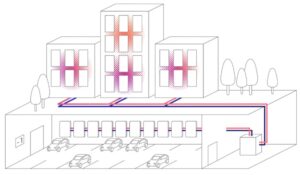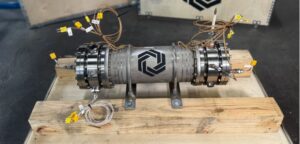Geothermal with no drilling, ransoming energy and farming jet fuel
In this issue:
Antarctica on the brink
The latest research on the state of the West Antarctic Ice Sheet indicates the continent is on the brink of irreversible changes to its ice, ocean and ecosystems. These changes include a rapid decline in sea-ice coverage, weakening of the ice sheet and ice shelf stability and population declines in some marine and terrestrial species. The study, by the Australian Antarctic Division, suggests the Antarctic problem is magnitudes more severe than that widely reported for the Arctic. “The winter deficit of Antarctic sea ice over the past 10 years is of similar magnitude to the total Arctic winter sea-ice deficit over the past 46 years”, according to one of the scientists.
EVs power on
Global EV sales reached 10.7 million in the first 7 months of 2025, a 27% year on year increase, despite US tariffs and and the removal of subsidies introduced under the Biden administration. Some of those are still obtainable for a few more weeks and some commentators are saying the tariff factor has yet to kick in fully but the US market remains a minority proportion on the global scale at under 10%. Sales in China accounted for 61% of the total market (6.5 million vehicles) and Europe accounted for 21% (2.3 million).
Auditors predicting increasing risk
A survey of 900 European chief internal auditors has revealed 43% consider climate change, biodiversity and environmental sustainability to be material risks to their businesses. This group of risks rounded out the top 5 list, which was headed by changes in laws and regulations followed by, in order, cyber security, competitive challenges and digital disruption.
School leavers want green jobs
More than half of the respondents to E.ON’s regular school leaver survey in the UK see green jobs as higher value, with 44% saying they wanted to contribute to a more sustainable future. The strongest interest lies in working in low carbon energy. Of those not going to university, 47% said their decision was partly driven by desire to enter the green economy workforce as soon as possible.
Geothermal without the drilling – another new renewable
Swiss Institute of Technology in Lausanne (EPFL) spin-off, Enerdrape, is claiming the world’s first geothermal panel, geothermal without drilling or direct ground contact. The panels are affixed to underground walls in sites such as car parks, basements or transport tunnels. The collected heat is connected to a heat pump system which transfers the heat (or cooling) through an above ground building. Enerdrape claims 1 square metre of panelling will heat or cool 10 square metres of floor area. Anyone caught on a London tube in the heat of summer will immediately spot the potential.
Ransoming energy
Not as strange as it sounds. We’ve all heard of ransomware and we’ve seen a few high-profile attacks in New Zealand in recent years. It has emerged Norway experienced a cyber attack on one of its dams earlier this year when the control system of a dam in Bremanger was hacked, allegedly by a pro-Russian group. Valves were opened remotely and 500 litres a second was spilled for 4 hours, that’s over 7 million litres wasted. Not huge in the wider scheme of things but a stark warning of vulnerability and a wake up call for everyone around the cybersecurity of our critical infrastructure.
Farming jet fuel
New Zealand has a huge dairy sector and a large market for aviation fuel, which is currently entirely imported. Terrific then to hear Circularity Fuels of California has developed the Ouro Reactor which converts biogas from dairy farm waste into syngas, a precursor to jet fuel, at 1% of the cost of using a gas-fired reformer. The units are small and manageable on-farm with no reliance on large production facilities. Are we to see the emergence of a new, zero carbon fuel for Air NZ and Fonterra moving into the aviation fuel business?
Did you know ……
The silver trapped inside Australia’s retired solar panels is as much as the annual output of its largest silver mine? Thankfully, scientists at Macquarie University have developed a technology to extract the silver with 77% efficiency without damaging the wafers or glass. Each panel contains about 20 grammes of silver worth about AU$36 (NZ$40) and only about 15% of Australia’s used panels are currently being recycled. Mining is struggling to keep up with growing demand of about 7% a year and prices have doubled in the last 7 years. Named Jet Electrochemical Silver Extraction (JESE), the technique uses a fine stream of weak acid to dissolve silver directly from the panel surface, leaving everything else untouched. It has been licensed to Lithium Universe for commercialisation.


